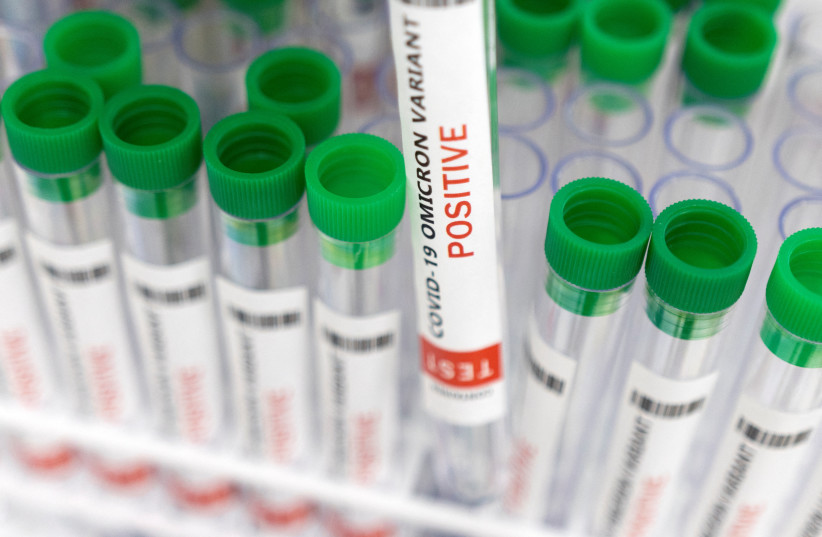Israel recorded the highest number of serious COVID-19 cases since the start of the pandemic over the weekend, with 1,213 people reported to be in serious condition. The previous record was 1,193 serious cases on January 17, 2021.
A total of 37,977 new COVID-19 cases were recorded in Israel on Friday, according to a Saturday evening Health Ministry update, bringing the total number of active cases in Israel to 370,798.
The 1,213 serious cases include 270 intubated patients. Of the 148,988 tests taken, both PCR and antigen, there was a positive return rate of 25.5%.
Of some 5,800 people currently hospitalized with COVID-19, some 84% are over the age of 60. The haredi (ultra-Orthodox) sector comprised 8% of all serious and critical cases, while the Arab sector comprised 20%. The remainder are from the general population.
The R rate remains relatively steady at 0.88 and has been declining since mid-January.

To date, some 4,447,523 Israelis have received the third shot, of whom 661,242 have then received a fourth dose. Since the start of the pandemic, 9,135 people in Israel have died, Health Ministry data showed, a large jump from the previous day’s number of 9,080.
On Saturday evening, N12 reported that Dr. Dorit Nitzan, emergency manager to the World Health Organization in Europe, shared data showing that the Omicron sub-variant of concern, BA.2, was three times more contagious than the original Omicron variant, which itself is the most contagious variant seen to date.
The government voted on Friday afternoon to extend the coronavirus regulations in educational institutions, including compulsory mask-wearing and the obligation for non-vaccinated employees to present a negative test result every 48 hours.
The extension was approved via telephone vote, and the regulations will now be in place until March 1, subject to approval of the Knesset Education Committee.
The government also approved the extension of the Green Pass regulations until March 1, although it made several adjustments to the existing framework.
Venues and buildings will no longer be required to follow Green Pass regulations except for places where there is a particularly high risk of infection.
These exceptions include:
- Event halls or gardens
- Night clubs
- A conference hall where food will be served or sold
- Cultural event venues where attendees will not be seated for the duration of the event
The government will also cancel the permitted occupancy limit in places still operating under the Green Pass and the general size limit on large gatherings. Restaurants will no longer be required to position tables apart at a distance of 1.5 meters.
The changes will take effect on Monday, following the approval of the Knesset’s Constitution, Law and Justice Committee.
